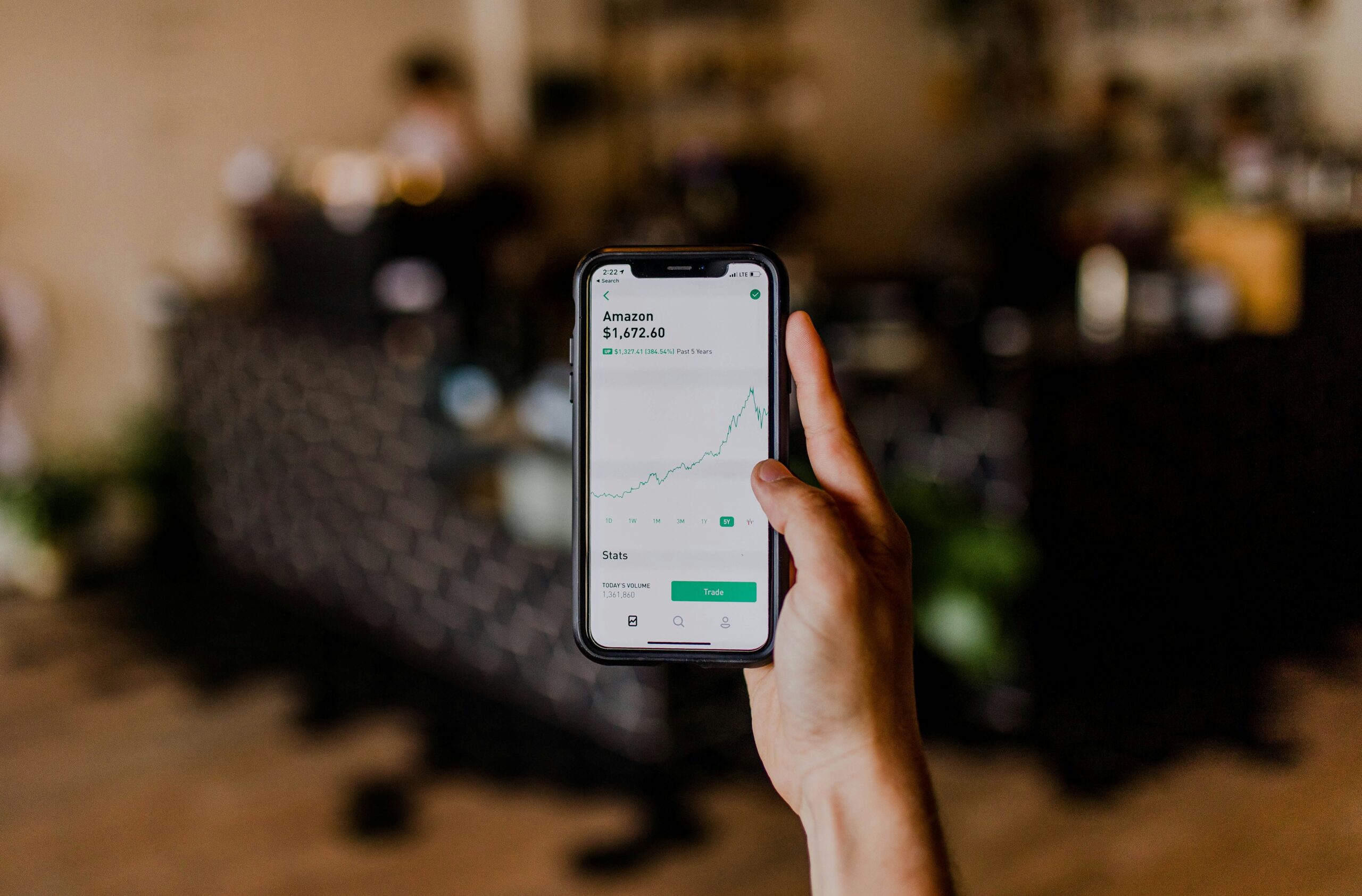If you’ve heard of prop trading but aren’t exactly sure what it means, don’t worry — you’re not alone. The term might sound complicated, but it’s actually pretty simple.
A prop trading firm is a place where traders trade using the company’s money instead of their own. The goal? To make profits for themselves and the company.
Unlike traditional trading, where investors use their own funds, in prop trading, you get access to larger amounts of money, professional tools, and advanced strategies. But it’s not always easy — prop trading comes with strict rules, careful selection, and high-performance expectations.
Keep reading to find out exactly what prop trading is, how it works, and its advantages and risks. Whether you’re considering entering prop trading or just want to understand it better, this guide is for you.
Definition and Concept of Prop Trading

What does “Prop Trading” mean?
Prop trading (proprietary trading) means a firm trades on financial markets using its own money — not its clients’ funds. These firms take their own risks, aim for their own profits, and aren’t brokers or advisors. Their main job is finding profitable opportunities and making trades based on market movements.
How does a prop trading firm work?
A prop trading firm uses its own financial resources to trade stocks, currencies, commodities, or cryptocurrencies. Traders at these firms are responsible for identifying and making the best trades. Unlike individual traders, they have access to larger capital, advanced tools, and cutting-edge technology.
Difference between prop trading and retail trading
- Retail Trading: You trade with your own money, and all risks are yours.
- Prop Trading: You trade with the firm’s money, and profits are shared according to a pre-agreed deal.
Simply put, retail trading means you use only what you have, while prop trading gives you access to bigger resources — larger capital, higher potential profits, but also higher risks.
How Does a Prop Trading Firm Operate?

Sources of Capital and Business Model
Prop trading firms finance their operations with their own money — they don’t depend on outside investors or clients. Their entire revenue comes from the profits made through trading. That’s why they’re very selective about hiring traders and invest heavily in advanced trading technology.
How are traders paid?
Usually, traders at prop firms don’t have a fixed salary. Instead, they receive a portion of the profits they generate.
For example, if the firm provides a $100,000 account and your profit-sharing rate is 80%, if you earn a $1,000 profit, you keep $800, and the firm gets the remaining $200.
Risks and Benefits for Traders and Firms
For traders:
- Benefits: Access to large capital without risking personal money, professional training, advanced resources, and strategies.
- Risks: If your performance is poor, the firm may withdraw your funding.
For firms:
- Risks: They take on the losses of traders who don’t perform well, losing their own money.
- Benefits: Profits generated from successful trades.
Because of these risks, prop firms carefully select and closely monitor their traders.
Types of Prop Trading Firms

Firms Offering Funded Accounts
These firms provide traders with funded accounts, but first, you must pass an evaluation process. If you prove you have profitable strategies and good money management, you get access to the firm’s capital.
Firms Hiring Professional Traders
These firms work similarly to traditional employment. Traders are hired with contracts, sometimes even receiving a basic salary, but they must consistently generate profits for the firm.
Hybrid Firms (Mixed Models)
Some firms combine both models. They might have full-time professional traders as well as funded account traders. This flexible approach allows firms to benefit from talent in both categories.
Types of Accounts in Prop Trading

When starting with a prop firm, you need to choose the right account type. Firms usually offer two main options: Challenge Accounts and Instant Funded Accounts. Each has its own rules, benefits, and limitations.
Challenge Accounts
These accounts are the most common in prop trading. Before accessing real funds, you must pass an evaluation.
General Rules and Features
Challenge accounts test if you have a profitable trading style and can manage risks. Usually, you must:
- Achieve a specific profit target (like making 10% profit).
- Limit daily and total losses (for example, no more than 5% daily, or 10% overall).
- Trade for a minimum number of days.
- Follow the firm’s trading rules (no aggressive scalping or copy trading).
Evaluation Phases
Most prop firms require you to pass two evaluation phases:
- Phase 1 — Prove Profitability: Hit a profit target within set days, without exceeding loss limits.
Phase 2 — Show Consistency: Continue trading profitably with slightly easier rules.
If successful, you get a real funded account and start sharing profits with the firm.
Advantages and Disadvantages
Advantages:
- Low initial cost (only pay the challenge fee, not large investments).
- Access larger accounts after evaluation.
- Improve trading discipline.
Disadvantages:
- No immediate access to capital.
- Strict rules can be challenging.
- If you fail, you must pay again to retry.
Instant Funded Accounts
If you don’t want evaluations and need immediate funded trading access, choose an Instant Funded account.
Differences from Challenge Accounts
Unlike Challenge accounts, you don’t have to prove profitability beforehand. You pay a higher fee upfront but instantly gain access to funded trading.
Costs and Benefits
Costs: Higher initial fee because firms risk more by giving immediate access.
Benefits:
- Immediate capital access, no tests.
- Save time — no evaluations.
- Ideal for experienced traders.
Limitations and Specific Conditions
Even with immediate capital access, there are restrictions:
- Possibly lower profit-sharing percentage compared to Challenge accounts.
- Strict risk management rules.
- Limited initial profit withdrawals.
Choosing the Right Account Type
Choosing between a Challenge account and an Instant Funded account depends on several factors:
Factors to Consider:
- Budget: Challenge accounts are more affordable initially. If you have more money available and want fast access, consider an Instant Funded account.
- Experience: Beginners benefit from Challenge accounts to learn discipline. Experienced traders can start immediately with an Instant Funded account.
Recommendations for Beginners vs. Advanced Traders:
- For beginners: Challenge accounts are great for developing skills and learning without risking big money.
- For advanced traders: Instant Funded accounts offer quick access to trading capital, ideal for those with tested strategies ready to start earning right away.
Whatever you choose, the most important thing is to have a solid strategy and follow risk management rules. Prop trading can offer great opportunities, but only if you’re serious about it.
Advantages and Disadvantages of Prop Trading

Prop trading can be a great opportunity for traders who want access to large amounts of money without risking their own savings. However, it’s not always easy, and every benefit comes with challenges.
Advantages for Traders
Prop trading offers several big advantages compared to individual trading:
Access to More Money
One of the biggest draws of prop trading is that you get to trade larger amounts of money without risking your own savings. Instead of starting with just a few thousand dollars, you might get accounts with tens or even hundreds of thousands. This gives you a chance to earn more profits than you could on your own.
Potential to Earn Without Risking Personal Money
If you trade with your own money and lose, you lose your own funds. In prop trading, losses are covered by the company — not by you. Even though you pay a small fee to start a challenge account, you won’t lose your personal savings if things don’t work out.
Training and Mentorship
Many prop trading firms offer educational resources, mentorship sessions, and proven strategies. This support is especially helpful if you’re a beginner and want to learn from professionals.
Disadvantages and Challenges of Prop Trading
As attractive as prop trading may sound, it’s not a magical solution. Here are some challenges:
Strict Evaluation Rules
If you choose a Challenge account, you must pass difficult evaluations. Many traders don’t pass on the first try and sometimes have to pay multiple evaluation fees. Limits on daily losses and required trading days can be frustrating, especially for those who struggle with disciplined trading.
Hidden Fees and Costs
Some prop firms seem attractive at first, but they may have hidden fees like withdrawal fees, monthly management fees, or extra charges for premium services. Always read the terms carefully before choosing a firm. Some firms are legitimate, but others exist only to scam traders.
Strict Risk Management Rules
Even though you have access to large amounts of money, you don’t have total freedom. Prop firms have strict risk rules — for example, limits on daily losses or restrictions on aggressive trading strategies. Breaking these rules might result in losing your account access.
How to Choose the Right Prop Trading Firm?

Choosing the right prop trading firm is very important. Many firms exist, but not all are trustworthy or suitable for every trader.
Important Factors to Consider:
Reputation and Reviews
Look at other traders’ opinions and check if the firm has a good reputation. Trading forums and independent review sites can give valuable insights. Avoid firms with many complaints about delayed withdrawals or unclear rules.
Payment Structure and Withdrawal Rules
Check how easily you can withdraw your profits. Some firms have long waiting periods or withdrawal limits. Also, compare profit-sharing — some firms offer between 50% to 80%. For instance, Funding Dynasty, our prop firm, offers up to 80% profit sharing depending on the chosen account.
Allowed Strategies and Markets
Not all firms allow all types of trading strategies. Some ban scalping or trading during major economic events; others ban copy trading or bots — Funding Dynasty believes in offering traders all the tools they need to succeed, which is why we allow copy trading, bots, and we also offer 1:100 leverage on Forex and 1:50 on Indices. Also, don’t forget to check if the firm allows trading on your preferred markets — Forex, stocks, commodities, or cryptocurrencies.
Steps to Becoming a Prop Trader
To start a career in prop trading, follow these steps. Knowing how to trade isn’t enough — firms look for discipline, good strategy, and effective risk management.
Application and Evaluation Process
First, choose a prop firm that fits your trading style and goals. Most firms require you to pass an evaluation, especially for Challenge accounts.
The application is usually simple: sign up on the firm’s website, choose an account type, and pay the registration fee. Then, you’ll get access to a demo evaluation account. Funding Dynasty, for example, offers Challenge accounts up to $200K and Instant Funded accounts up to $100K.
Evaluation Tests and Profit Goals
Each firm has different evaluation rules, but common requirements include:
- Achieving a specific profit percentage (e.g., 10%).
- Limiting daily and total losses (max daily loss & max drawdown).
- Trading for a minimum number of days to prove consistency.
- Following the firm’s rules for strategy and risk management.
If you pass the evaluation, you’ll move on to the next stage — a real funded account.
Moving from Demo to Real Account
Once you pass the evaluation, the firm gives you access to a real trading account funded by the company. This lets you trade real money and start sharing profits with the firm.
At this point, carefully follow the rules. Breaking loss limits or using banned strategies could result in losing your account access. Always read and understand the firm’s terms and conditions.
Regulations and Legal Aspects of Prop Trading

Prop trading is relatively new, and regulations vary between countries. It’s important to understand the legal framework and tax implications.
Is Prop Trading Legal?
Yes, prop trading is legal in most countries, including Romania. Prop firms trade with their own money and aren’t regulated like brokers or investment funds.
However, some firms have questionable practices, so always check a firm’s reputation carefully before joining.
How Are Prop Firms Regulated?
Prop firms aren’t regulated the same way as traditional brokers because they don’t manage client money. Instead, they operate under private contracts between the trader and the company.
In some countries, regulators like the SEC (USA) or FCA (UK) may impose rules. As a result, some firms register their operations in countries with lighter regulations.
Tax Issues for Prop Traders
If you trade for a prop firm, you’re usually considered a freelancer or independent contractor, meaning you handle your own taxes.
Depending on where you live, profits from prop trading might be taxed as freelance income or investment gains. Talk to an accountant or tax specialist to understand your responsibilities clearly.
Is Prop Trading Worth It?

Prop trading offers a great opportunity if you want access to large capital without risking your own money. But it’s not for everyone—your success depends on discipline, good strategies, and following the firm’s rules.
Is Prop Trading Right for You?
If you already have trading experience and want bigger capital, prop trading can be an excellent choice. But if you’re just starting and don’t yet have a clear strategy, it’s better to practice on a demo account first.
Here are a few questions to help you decide:
- Do you have a proven history of profitable trading?
- Can you follow strict risk management rules?
- Are you willing to pass an evaluation before getting real money?
- Do you have a plan for handling withdrawals and fees?
If your answers are “yes,” prop trading could be right for you.
Tips for Success in Prop Trading
If you decide to try prop trading, here are tips to increase your chances of success:
- Choose a reputable prop firm — always check the firm’s rules before signing up.
- Follow risk management rules — avoid impulsive trades and don’t exceed limits.
- Be patient — most traders don’t pass evaluations on the first try. Learn from mistakes and try again.
- Test your strategy before starting — make sure you have a clear, profitable method before applying.
- Plan your withdrawals — firms have different withdrawal rules, so create a plan to manage your profits effectively.
Prop trading is a great opportunity, but it’s not for everyone. With discipline, a solid strategy, and respect for the rules, prop trading can help you trade larger amounts and make profits without risking your savings.
Now that you have all the essential information, analyze your options and see if prop trading is the right path for you!
About Trading Busters
Trading Busters isn’t just a community of traders — it’s a complete ecosystem that gives you everything you need to succeed. From personalized mentorship and proven strategies based on statistics and probabilities to top-quality trading signals, Trading Busters offers you the competitive advantage you need. Whether you’re new or experienced, you’ll find the support, resources, and capital here to take your trading to the next level.


